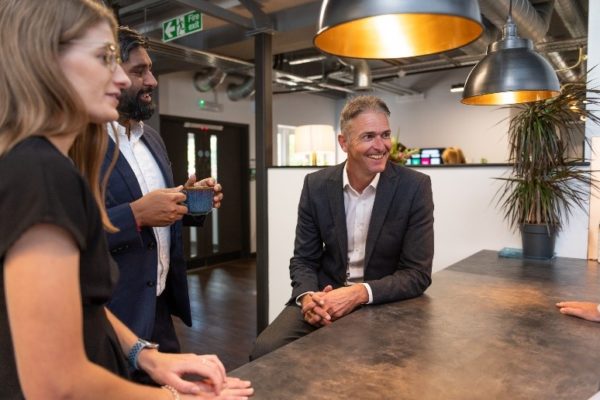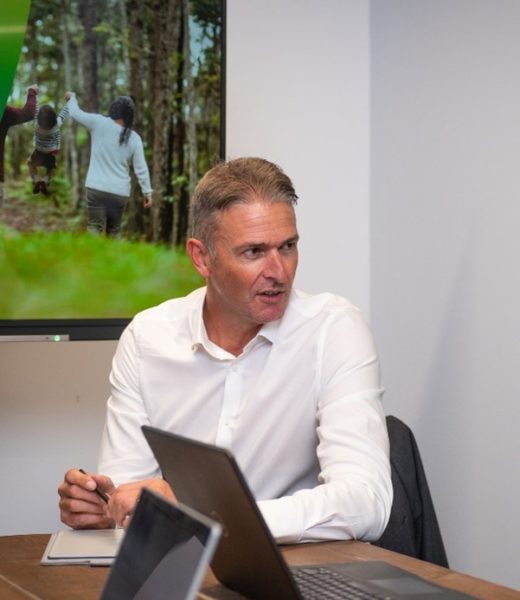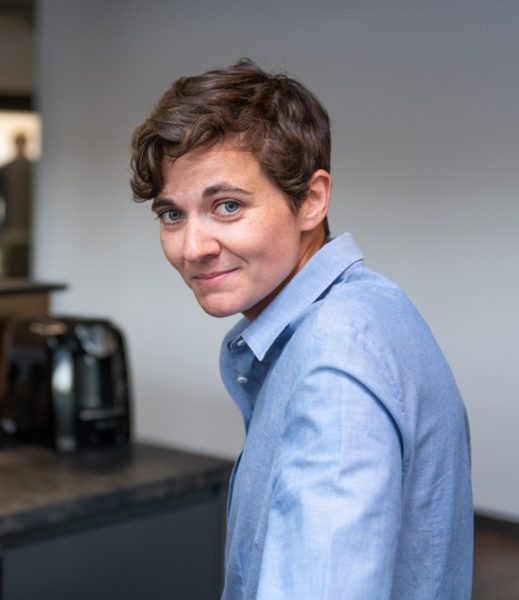That was the year that was…
2022 is a year many in local government and the sport, physical activity and active wellbeing and cultural sectors will want to forget. However, despite sluggish recovery in many areas, labour market shortages, rising supply chain and construction costs, inflation and to top it all off, eye watering increases in utility costs – there is still hope and a real purpose for valued services in what is likely to be a long and painful recession.
As we approach the end of the year, we have taken the opportunity to reflect on the last 12 months as a team and wanted to share some learning, celebrate the achievements of our clients and look ahead to 2023 and beyond.
2022 has arguably been the most significant period of challenge that the public leisure sector has ever faced, quite staggering given the Covid crisis originally being seen as the once in a generation ‘existential threat’.
Many of our local authority clients and their elected Members are facing extremely difficult decisions regarding the purpose, affordability and long-term sustainability of their public leisure and cultural services.
We have been able to follow the crisis as it has evolved through our work across the UK and through our regular Think Tank seminars, which many of our clients and delegates have found incredibly useful and somewhat cathartic at times!
In periods of change, demand for our services often increases, and we have been humbled by the requests for support throughout the year from our local government clients.
Our clients’ groundbreaking work on the pivot to active wellbeing in Greater Manchester is building momentum with a number of projects forging ahead and further support from Sport England and the combined GM authorities will accelerate this programme further.
SLC is now sharing its learning with our current clients seeking to explore what a pivot to active wellbeing could achieve for their communities and we will continue to play our part in the ongoing development of thinking to support a process of redefining the role of future ‘leisure’ services.
SLC welcomed two new colleagues a year ago last summer who have settled in magnificently this year – Gaby Sims and Chetan Ladwa are busy supporting our Directors on multiple projects, bringing new ideas and thinking to help meet the growing needs of our clients.
Looking back on 2022
This year has seen multiple procurements progress as the market begins to stabilise post-Covid.
However, it is far from ‘business as usual’ with the commissioning of new contracts and a dynamic and innovative approach is now required to manage the changing needs of communities, financial challenges and changes in risk profiles. The team are currently supporting 9 local authorities with their leisure procurements, including two core cities; helping our clients to secure an operating partner who they can work with strategically over the long term.
We are in the process of further developing and enhancing our approach to procurements to reflect the current challenges being faced but also to build upon greater shifts in emphasis towards place based delivery. We’re placing a stronger focus on active wellbeing through enhanced specifications and performance management frameworks and designing approaches to reduce the burden on bidders in a busy market.
Toby Kingsbury, Director commenting on the current procurement market said;
 “Despite all of the challenges faced by the sector now and over the last few years, the operator market is alive and kicking. We’re seeing good levels of engagement by operators who are repositioning themselves to better align with the broader health and wellbeing agenda and responding well to a wider, place-based approach to delivery. BUT, the appetite for risk has understandably changed and only those procurements which strike a fair balance will succeed in delivering the right outcomes for local authorities.
“Despite all of the challenges faced by the sector now and over the last few years, the operator market is alive and kicking. We’re seeing good levels of engagement by operators who are repositioning themselves to better align with the broader health and wellbeing agenda and responding well to a wider, place-based approach to delivery. BUT, the appetite for risk has understandably changed and only those procurements which strike a fair balance will succeed in delivering the right outcomes for local authorities.
In a changing commissioning environment, our advice remains consistent – start early, think very carefully about what you want to deliver and for whom, ensure the offer is attractive to the market and manage the expectations of your senior officers and elected Members by taking them on the journey.”
The Pivot to Active Wellbeing

Put simply, the pivot to active wellbeing means frequent and meaningful community engagement to co-design services; re-imagining leisure facilities into community active wellbeing hubs; maximizing the use of green and blue spaces; and seeking every opportunity to build everyday movement into the lives of residents.
There are opportunities for every audience across the life course – start well, live well and age well; and services designed to bring people together. Catering for those experiencing inequalities is embedded in the core purpose of pivot to active wellbeing.
Achieving this requires a whole system approach, collaboration, and distributed leadership which empowers anyone to get involved and play their part.
We are working alongside local authorities and system partners to explore how they can pivot their leisure services into a active wellbeing service to deliver long term outcomes and significant benefits including taking pressure off health and adult and social care services.
SLC is supporting Councils in developing their own bespoke approach and establishing a clear strategy and business case for their own pivot from leisure to active wellbeing. We are very excited about the transformational potential of this work, not just in GM, but nationwide.
 Duncan Wood-Allum, Managing Director and SLC’s very own pivot champion said, “The public leisure sector has traditionally failed to articulate its purpose clearly enough and failed to demonstrate its role in prevention up until now. Working alongside our clients we are now developing proof of concept and business cases using new tools to demonstrate the cashable and non-cashable savings and benefits realised through pivoting. Combining this with the application of Marmot’s Proportionate Universalism principles creates a powerful and compelling proposition for elected Members and strategic partners to invest in – even in the current period of austerity.”
Duncan Wood-Allum, Managing Director and SLC’s very own pivot champion said, “The public leisure sector has traditionally failed to articulate its purpose clearly enough and failed to demonstrate its role in prevention up until now. Working alongside our clients we are now developing proof of concept and business cases using new tools to demonstrate the cashable and non-cashable savings and benefits realised through pivoting. Combining this with the application of Marmot’s Proportionate Universalism principles creates a powerful and compelling proposition for elected Members and strategic partners to invest in – even in the current period of austerity.”
SLC has continued its support to local government and contributed to wider sector thinking through the release of our blogs and articles on procurement and the pivot to active wellbeing, these can be found here. We have held three Think Tanks in 2022, with over 50 local authorities attending. These sessions are a chance to come together on an open forum to discuss critical themes within the market, collaborate with colleagues and hear key sector insights from the SLC team. We will continue to run our virtual Think Tanks into 2023.
We’ve contributed to supporting national conversations and lobbying DCMS and the Treasury through Sport England on the utilities crisis and are grateful to the London Borough of Ealing and Manchester City Council for supporting this process.
We’ve undertaken a number of fantastic projects with our local authority clients in 2022, a summary of which can be seen below:
Bury Council – development of a Active Wellbeing Strategy and business case to support a pivot to active wellbeing.
Ipswich Borough Council – Working with DB3 architects and partners we are developing designs for the planned new Gainsborough Sports Centre and Ipswich Aquatics Centre projects to RIBA stage 3 to support a planning application.
Westminster City Council – support with the development of designs for the Seymour Centre and developing their approach to integrated management of their leisure, libraries, registrars and community services.
Swindon Borough Council – undertaking a Leisure Asset Review to support their partnership with GLL.
Active Communities Procurements for; Mole Valley District Council, John Warner School, Stevenage Borough Council, Waverley Borough Council, Harborough District Council, Melton Borough Council, Rutland Council, Bristol City Council and Sheffield City Council.
Sport Wales – working with several local authorities within West Wales to understand the motivations of year 9 pupils in transitioning from school activity to community activity in partnership with Dannielle Roberts at Proper Active.
Looking ahead to 2023
Anna Dalton, Director set out her thoughts on the year ahead;
“As we look towards the new year, it’s clear that the challenges aren’t over and in many ways are just beginning.
Central Government isn’t so much hinting at a move towards further austerity as advertising it with Vegas-scale billboards and neon lights. As ever,
this will mean further cuts in real terms for local government even as they struggle to manage current budget pressures and face continued growth in the demand for statutory services. For local authority
leisure, sport, physical activity and active wellbeing services, this will inevitably translate into further scrutiny of budgets and the cost of delivering services. The need to demonstrate the outcomes that are being delivered and the wider health, social and economic benefits services bring to a local area will be greater than ever.
 Energy costs look set to remain high, creating pressure across Council budgets and undermining the sustainability of even modern and otherwise well performing facilities. Those local authorities seeking to modernise their ageing facility stock in order to improve revenue performance, quality of services and outcomes being delivered will be faced with the challenge of trying to stay ahead of rising construction costs as business cases and designs are developed.
Energy costs look set to remain high, creating pressure across Council budgets and undermining the sustainability of even modern and otherwise well performing facilities. Those local authorities seeking to modernise their ageing facility stock in order to improve revenue performance, quality of services and outcomes being delivered will be faced with the challenge of trying to stay ahead of rising construction costs as business cases and designs are developed.
And so, the sector must continue to look for solutions – to continue to deliver services to local communities for less, to find new ways of working with greater efficiency and to refocus more limited resources on the communities, cohorts and interventions that can deliver the greatest impact.
Necessity is the mother of invention, so perhaps 2023 can be a year of re-invention. The energy crisis creates a greater impetus for decarbonization and energy efficiency measures – which given the carbon impact of older leisure facilities and the wider climate crisis is sorely needed. Rising construction costs and the apparent plateauing of traditional leisure centre demand some way short of pre-Covid levels may prompt a move away from “build it and they will come” sport and leisure facilities. This could herald the pivot towards a more holistic network of active wellbeing hubs supported by place-based community led interventions. Pressure on budgets for non-statutory services will only reinforce the need to focus on delivery through an approach based on proportionate universalism.
None of this will be straightforward and it will require concerted leadership efforts from across the sector to make it happen. At times it will require a leap of faith – the confidence to try something new knowing it may not be a total success or deliver immediate results. But some signs of change are already starting to show – in Sport England’s move towards a place-based approach that puts tackling inequalities at its heart, in GM’s pivot to active wellbeing, in a growing awareness of the need for the sector to position itself as a credible partner within new Integrated Care Systems.
As a company that has always strived to push the boundaries and promote innovation within the sector. We look forward to supporting new and existing clients to confront these challenges and to working together with those clients and partners to devise new approaches and find solutions.”
And finally, a thank you
On behalf of the whole team at SLC, we want to thank all our Clients, Associates and Strategic Partners for all your support, hard work, determination and good humour over the last year.
We have never been so determined to pursue our vision of inclusive, healthy and active communities into 2023 with you.

